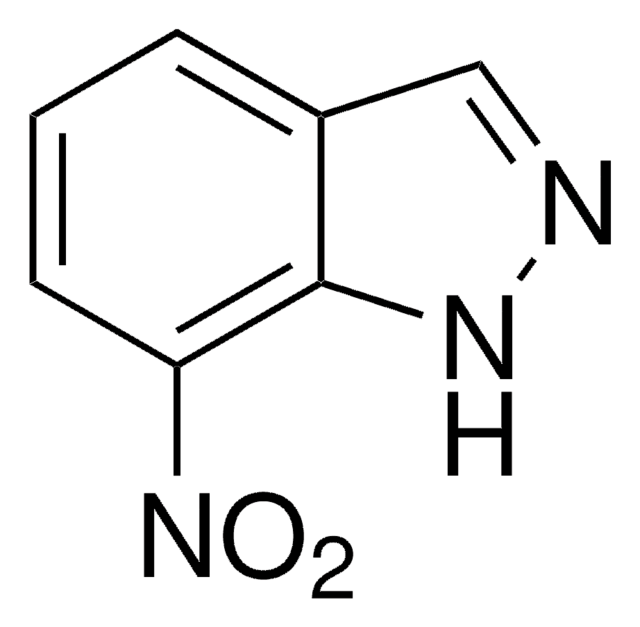N5751
Nω-Nitro-L-arginine methyl ester hydrochloride
≥97% (TLC), powder, nitric oxide production inhibitor
Synonym(s):
L-NAME HCl, L-NAME hydrochloride
About This Item
Recommended Products
Product Name
Nω-Nitro-L-arginine methyl ester hydrochloride, ≥97% (TLC), powder
biological source
synthetic
Quality Level
Assay
≥97% (TLC)
form
powder
color
white to off-white
mp
132 °C
solubility
H2O: 50 mg/mL
storage temp.
−20°C
SMILES string
Cl.COC(=O)[C@@H](N)CCCNC(=N)N[N+]([O-])=O
InChI
1S/C7H15N5O4.ClH/c1-16-6(13)5(8)3-2-4-10-7(9)11-12(14)15;/h5H,2-4,8H2,1H3,(H3,9,10,11);1H/t5-;/m0./s1
InChI key
QBNXAGZYLSRPJK-JEDNCBNOSA-N
Looking for similar products? Visit Product Comparison Guide
General description
Application
- to study the effects of brain-derived neurotrophic factor against neurotoxicity in rat cortical neurons
- to study its effect on far-infrared (FIR) enhanced microcirculation of rat skin
- to study its effect on leptin-induced regulation of myokine fibronectin type III domain containing five/irisin in murine myocytes and fat cells
- to study its effect on the levels of arginine vasopressin and neuronal nitric oxide synthase mRNA levels in hypothalamic paraventricular nucleus and supraoptic nucleus of rat
Biochem/physiol Actions
Storage Class Code
11 - Combustible Solids
WGK
WGK 3
Flash Point(F)
Not applicable
Flash Point(C)
Not applicable
Personal Protective Equipment
Choose from one of the most recent versions:
Already Own This Product?
Find documentation for the products that you have recently purchased in the Document Library.
Customers Also Viewed
Our team of scientists has experience in all areas of research including Life Science, Material Science, Chemical Synthesis, Chromatography, Analytical and many others.
Contact Technical Service












